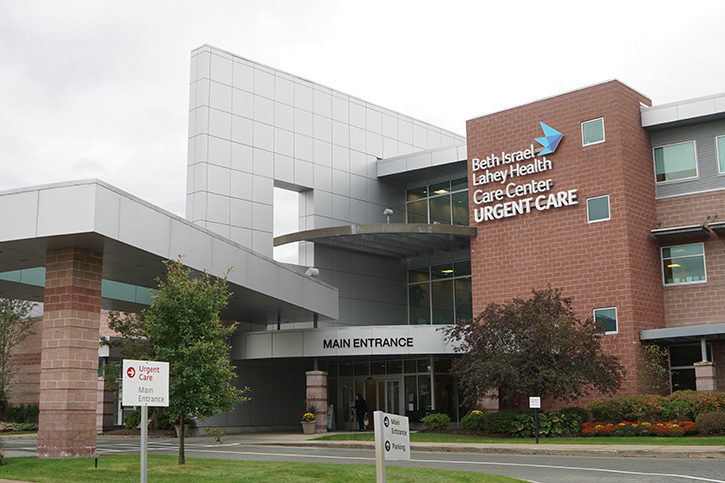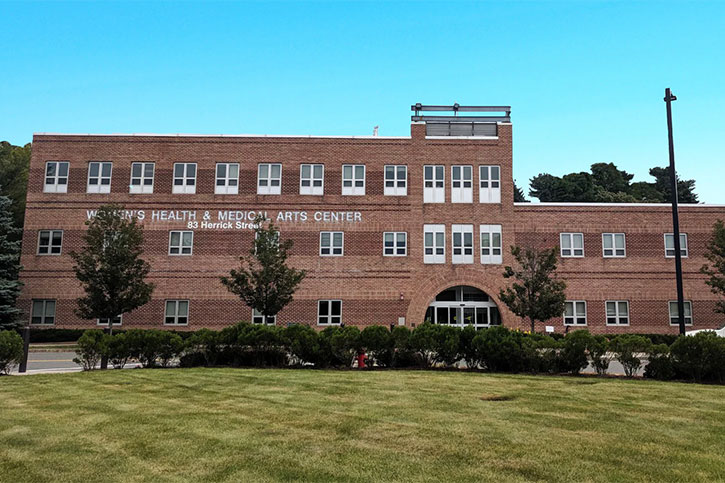Make an Appointment
To schedule an appointment with a Breast Care specialist, call us.
Advanced diagnostic and screening mammography
Mammography takes low-dose X-ray pictures of breast tissue. The test can identify lumps, tumors or other abnormalities you may not feel.
At Beverly Hospital, we know that early detection of breast cancer saves lives. Women over age 40, of average risk, should have a mammogram and a clinic breast examination by a health care professional every year.
We offer free breast cancer risk assessments that show your lifetime risk of developing breast cancer in comparison with the general population. Those at higher risk (more than 20%) could be candidates for further imaging and genetic testing.
Today's advanced technology — including ultrasound and breast MRI — enhances our ability to detect and treat breast cancer in its earliest stages. Our mammography screening sites not only have flexible hours, but also highly trained and skilled physicians and staff.
We follow the breast screening guidelines recommended by The American Cancer Society (ACS), which indicates that screening with mammography reduces breast cancer mortality in women aged 40 to 74. Today's advanced technology, including ultrasound and breast MRI, enhance our ability to detect and treat breast cancer in its earliest stages.

Our breast health team includes a variety of highly qualified providers:
We offer the most advanced breast imaging technology available today, including 3D mammography. Research has shown that 3D mammography is better than digital mammography s for many people. Compared to standard film-based mammograms, 3D mammograms:
A board-certified radiologist reads every screening mammogram that our team completes. The ImageChecker Computer Aided Detection System then double-checks each mammogram, which serves as an added level of accuracy.
Mammogram: Yearly mammograms are recommended starting at age 40 and continuing for as long as a woman is in good health.
Clinical breast exam: A clinical breast exam is recommended every three years for women in their 20s and 30s, and every year for women 40 and over.
Breast awareness and breast self-exam: Women should know how their breasts normally look and feel and report any breast change promptly to their health care provider. Breast self-exam (BSE) is important for women starting in their 20s.
Breast MRI: Less than 2% of all women in the United States should have a screening breast MRI in addition to a mammogram. This recommendation may be due to their family history, a genetic tendency or certain other factors. Talk with your doctor about your history and whether you should have additional tests at an earlier age.
Before scheduling a mammogram, the American Cancer Society (ACS) and other specialty organizations recommend that you discuss any new findings or problems in your breasts with your doctor. In addition, inform your doctor of:
If you typically experience tender breasts before or during your period, do not schedule your mammogram for this time. The best time for a mammogram is one week following your period. Always inform your doctor or X-ray technologist if there is any possibility that you are pregnant.
The ACS also recommends:
The National Accreditation Program for Breast Centers (NAPBC) granted accreditation to our Breast Health Center at Beth Israel Lahey Health Care Center–Danvers. NAPBC only gives this distinction to centers that voluntarily commit to providing the best possible care to patients.
With our NAPBC accreditation, you can be assured that you’ll receive:
When needed, your breast health team works with other subspecialty providers at Beverly Hospital to ensure you have the care you need to feel your very best.


